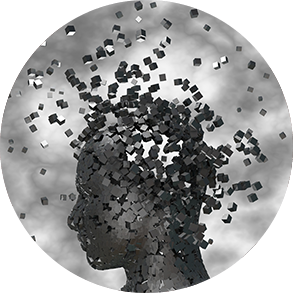Dialectical Behavior Therapy at Banyan Mass
Dialectical behavior therapy (DBT) is a form of cognitive-behavioral therapy that addresses patterns of negative thinking and behavior. The term “dialectical” refers to the idea that bringing acceptance and change together can offer better results than addressing one or both separately. Banyan's dialectical behavior therapy in Massachusetts focuses on incorporating two major techniques to help patients accept their thoughts and emotions in order to better understand how to regulate them. Acceptance techniques are used to help patients understand why they turn to certain behaviors and teach patients how to adjust their behaviors. Someone who struggles with an addiction can benefit greatly from dialectical behavioral therapy. Keep reading to learn how our Massachusetts addiction treatment center utilizes this unique method for recovery.

Who Created DBT?
Dialectical Behavior Therapy (DBT) was created by psychologist Marsha M. Linehan. She developed the approach in the late 1980s while employed at the University of Washington. She initially created this treatment strategy to assist people with borderline personality disorder (BPD), a condition marked by emotional instability, harmful behavior toward oneself, and issues with interpersonal interactions.
Linehan had personal experience with mental health issues, and her own road to recovery fueled her commitment to creating cures that work. DBT was developed in response to the shortcomings of conventional BPD therapy techniques, which frequently failed to address the powerful emotions and self-destructive behaviors that BPD sufferers face.
Linehan developed an approach that placed emphasis on validation, acceptance, and the development of coping mechanisms, drawing on mindfulness techniques, cognitive-behavioral therapy (CBT), and her own experience of the difficulties faced by people with BPD. She conducted substantial research, improving and establishing DBT as an empirically supported treatment through studies and clinical trials.
How Does DBT Work?
DBT operates on the notion that people who struggle with emotional dysregulation act impulsively and destructively as a result of their inability to control their strong emotions. Through the teaching of a variety of techniques for emotion management, distress management, and enhancing interpersonal relationships, therapy tries to assist clients in creating a life that is worthwhile.
Both individual treatment sessions and skill-building groups are a part of DBT. In individual therapy, the client and therapist collaborate to pinpoint problematic behaviors, delve into underlying thoughts and feelings, and create practical coping mechanisms. The therapist challenges unhelpful ideas and habits while simultaneously offering validation and support. The four major modules of mindfulness, distress tolerance, emotion regulation, and interpersonal effectiveness are the emphasis of skills training groups.
The Benefits of Dialectical Behavioral Therapy for Addiction Treatment
A pattern of behavior that is most common among addicts is pushing their loved ones away. Many individuals with drug or alcohol abuse problems struggle to maintain healthy relationships with others. Not only can their addiction affect the way their mind works, but they may also act out in ways they normally wouldn’t in order to get high. Even high-functioning addicts eventually run into relationship problems. While unhealthy relationships can result from substance abuse, they can also cause it. Regardless of the circumstances, the individual’s thought patterns and behaviors need to change for a full recovery.
While DBT is also used for mental health treatment, dialectical behavioral therapy for addiction focuses on negative patterns of thinking and behavior that feed into the person’s addiction. This is a form of talk therapy that is designed to help patients realize these negative patterns by addressing them aloud. The aim is to help them understand these patterns and learn how to replace them with healthier ones. During dialectical behavioral therapy, patients will have the opportunity to sit down with one of our licensed therapists to discuss the root of their addiction and how their thoughts and actions have affected their disorder. From there, both parties can work together to create an effective treatment plan.
At our drug rehab near Boston, we believe that no matter the person’s situation, substance abuse disorders are often intertwined with mental health issues. While our patients undergo treatment in one of our Massachusetts addiction treatment programs, they also need to address the underlying mental aspects of their condition in order to achieve sobriety.
Alongside our other addiction treatment therapies, we use our dialectical behavioral therapy program to help patients understand how their thoughts, emotions, and behaviors affect their addiction and their loved ones. We also teach them how to incorporate more positive and productive forms of thinking to support positive behavior. Our Massachusetts DBT program helps patients who may feel as if they’re alone in this experience, offering them the care and support they need to transform their lives.
Using DBT for Addiction Recovery
During their time at our Massachusetts addiction treatment center, patients will have the opportunity to participate in a variety of therapies and programs, including psychotherapy, mindfulness, and yoga. These programs are held in both individual and group settings, giving the patient opportunities for one-on-one time with therapists and time to build peer support. In order to help patients acquire these tools, we incorporate a variety of therapies in each of our levels of care that address different aspects of the individual’s condition. Every patient that walks through our doors is different, so we want to make sure we’re offering individualized care that will meet their needs.
If you or a loved one is struggling with substance abuse, contact us today for more information about our DBT programs in Massachusetts.
Most Insurance Plans Accepted
At Banyan Massachusetts our goal is to make sure that anyone who needs treatment from drug and alcohol addiction are able to get the help needed to assist them on the road to recovery. If you don't have insurance contact us to inquire about alternate methods regarding treatment for yourself or a loved one.











